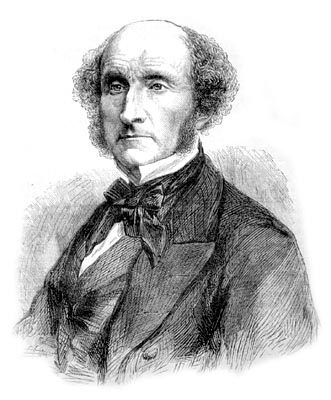 Short answer: Not always and in every way.
Short answer: Not always and in every way.
The question arose when my Tech Central Station article outlining a classical liberal view of the Iraq War brought criticism from my friends at the American Spectator, on the AmSpec Blog:
On Liberalism – Tuesday, May 29, 2007 @ 3:54:34 PM
Occasional AmSpec contributor S.T. Karnick has a piece at TCS Daily arguing for withdrawal from Iraq shortly after the troop surge shows results. Whatever the merits of this position, his framing of it is more than a little peculiar. Karnick claims he’s laying out the classical liberal view of foreign policy. "Nation-building is simply not a proper function for government, according to classical liberal thinking," he writes. That statement would seem to write John Stuart Mill, a defender of the British Empire, out of classical liberalism. If the author of On Liberty isn’t a liberal, no one is.
Mill’s views on the Empire were different from those of some of his liberal contemporaries, by the way. There simply isn’t any single set of narrow principles that define the "correct" classical liberal foreign policy (or modern liberal or conservative foreign policy, for that matter).
Posted By: John Tabin
My reply, posted by Hunter Baker on the the AmSpec Blog:
Karnick Replies to Tabin – Tuesday, May 29, 2007 @ 11:46:55 PM
S.T. Karnick asked me to post this reply to John Tabin’s post regarding Karnick’s understanding of Mill and liberalism:
Although his book On Liberty was indeed highly influential in forming the modern understanding of classical Whig liberalism, Mill frequently supported policies antithetical to it, because he believed in utilitarianism over natural rights. The following famous words from On Liberty—
"… the only purpose for which power can be rightfully exercised over any member of a civilized community against his will is to prevent harm to others. His own good, either physical or moral, is not a sufficient warrant. He cannot rightfully be compelled to do or to forbear because it will be better for him to do so, because it will make him happier, because in the opinions of others to do so would be wise or even right. These are good reasons for remonstrating with him, or reasoning with him, or persuading him, or entreating him, but not for compelling him, or visiting him with any evil in case he do otherwise."
—are all too easily cast aside by the ultilitarian thought in the sentence that immediately followed:
"To justify that, the conduct from which it is desired to deter him must be calculated to produce evil to someone else." (On Liberty, ch. 1.)
This is a loophole through which one can drive an entire army. One could surely "calculate" that a free Iraq would "produce evil to someone else," and hence we may be justified in compelling it to become a modern, liberal, democratic state. But even if we set aside the fact that it is manifestly impossible to accomplish this task, it is clearly a contradiction of the first four sentences of Mill’s statement. Mill’s willingness to set such limits on liberty is, in fact, precisely what begins the movement away from classical liberalism to the odious modern kind.
The two interesting points this discussion brings up are, one, that Mill, certainly a great figure in the understanding of classical liberalism, did not always hew to classical liberal principles, as in his willingness to allow for the possible incorporation of socialism on utilitarian grounds, and two, the fact that Mill’s utilitarianism did indeed leave a philosophical loophole in liberalism that led the way to a modern-liberal fondness for "positive liberty," the premise that people are not truly free unless the circumstances of their lives promote their ability to reach their full potential, whatever that may be.
To be sure, Mill tried not to go very far down that road himself, but his utilitarianism did open the door for the undermining of classical liberalism. Bad premises typically lead to bad conclusions, and utilitarianism has some highly intractable flaws, as is probably true of any foundational philosophy.
Mill was a great thinker, of course, and he was wrestling with problems that no one has ever fully solved nor probably ever will. That he was not fully consistent in his views on liberty should not surprise us nor reduce our opinion of his great stature as a political and social philosopher.
As to what happened to liberalism after Mill, well, sometimes even the nicest people have naughty children.

Well, Ronald Reagan’s reputation survived the disaster that was the 1986 immigration bill. However, in his case the subsequent events were a clear contradiction of the intent of the bill he signed, and the outcome was obviously not in accord with Reagan’s other actions and policies. In Bush’s case, the immigration bill poses no such cognitive dissonance. For the sake of the country, I wish that the characterization of it as a big, risky gamble were correct. It’s actually not a gamble at all; it’s a certain disaster.
“This is looking more and more like the Bush administration’s domestic version of Iraq: a big risky gamble, based on wishful thinking and nonexistent administrative competence that will end in disaster?”
-May16th Kausfiles from slate magazine.
Dead on analogy for this debacle. The only way Bush can cement his legacy as the dumbest president in history is with Domestic Iraq. He wants to mess up our country like he has messed up our foreign policy.
We have to secure the borders over there so we don’t have to secure em over here. Where can I sign up to secure Iraq’s borders??
http://www.slate.com/id/2166678/